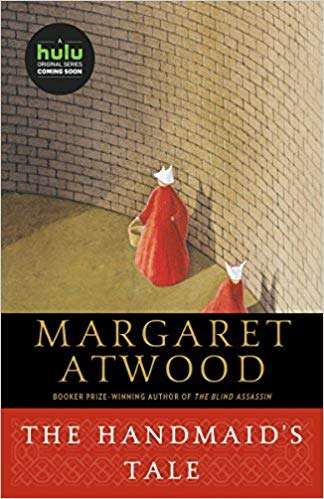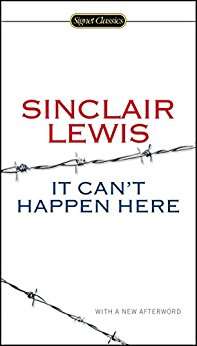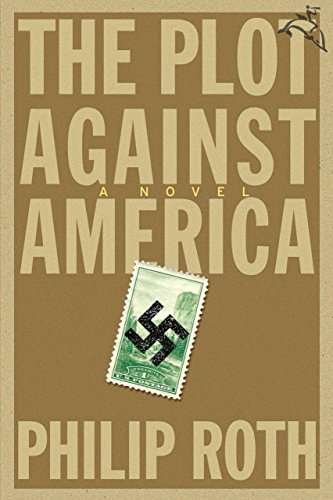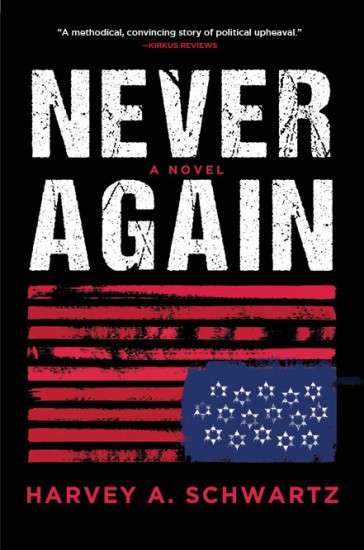There seems to be an important shift happening in pop culture. Remember when every click of your TV remote brought a different permutation of zombies? “Walking Dead” zombies. Teen zombies. Zombie Nation. Zombie Apocalypse. Even my favorite: Zombie Beavers. For a while it seemed as if Vikings would replace zombies but, as with the real Vikings, they didn’t last.
The latest shift, strangely, is not coming from the laptops of today’s fiction writers. Rather, they’re revivals and resurrections of works from as long ago as the 1930s — books suggesting that America could be vulnerable to an internal fascist infection.
Just a few examples:
- “The Man in the High Castle” is in its third season on Amazon Prime television. The series is based on a 1962 Philip K. Dick alternative history novel in which Germany and Japan won World War II. The United States is divided between the Third Reich in the eastern half of the country and the Japanese Empire on the West Coast, with a neutral zone in the Rockies. The show takes place in 1962, the year the book was written, in a sort of fascist “Mad Men” world. The press is controlled by the government, the stars on the flag are replaced with a swastika. After 20 years of occupation, most Americans are resigned to the new state. Jews, minorities, gays are virtually eliminated from American society.
- “The Handmaid’s Tale” is in its third season on Hulu. It, too, is based on a novel, this by Margaret Atwood, written in 1985. The story takes place in Boston after a religious fundamentalist coup has taken over the national government. Women have no rights and are subject to reproductive slavery.
- “The Plot Against America” joins this trend with a television series just announced by HBO based on Philip Roth’s novel. Roth imagines an America in which aviator Charles Lindbergh defeated Franklin Roosevelt in the 1940 election. Lindbergh, a Nazi sympathizer, keeps the United States neutral in the war. His campaign slogan, eerily, is “America First.”
The cherry on top of these three revivals of long-published books is the republication of Sinclair Lewis’ classic novel It Can’t Happen Here, first published in 1935. Lewis imagines a pseudo-populist candidate, a mix of Huey Long and Father Coughlin, elected President. This book, which was Lewis’ bestselling work at the time, had all but disappeared. Today it is the Number Seven bestselling Kindle title for historical fiction.
Something significant is happening here.
What is causing scions of American pop culture — HBO, Amazon, Hulu — to simultaneously revive long-obscure books from 1935, 1962, 1985 and 2004 into multimillion-dollar high-profile productions? What makes them think there is a huge popular market for tales of Nazis destroying the Statue of Liberty, of forcing women into reproductive slavery, of right wing populism as a veneer for fascism?
The obvious answer would start with a “T” and end with a “rump.” Tempting as that would be, though, the timeline doesn’t align. Hulu announced it was producing “The Handmaid’s Tale” in April 2016, a few months before Trump was nominated, and well before the surprise election result. “The Man in the High Castle” premiered in November 2015.
A more nuanced explanation for the emergence of these tales is that both these television series and Trump’s election are reflections of the insecurity of present-day America. Since the end of the Cold War, a time when there were clear Bad Guys (them) and Good Guys (us) lines within our culture has blurred. Blurred to the point where President Trump can contend that there are good people on both sides of anti-Nazi protests.
Regardless of what the decision-making process looked like in entertainment boardrooms when these series were green-lit, the popularity and continuation of these series is an indicator of the strength of this insecurity in the political culture right now. Stories of discrimination, of loss of civil rights, of reproductive servitude, serve as evidence of apocalyptic fears.
Sound familiar?
Sinclair Lewis wrote in the 1930s when fascism lurked on horizons foreign and domestic. His title It Can’t Happen Here was a warning of just the opposite, that just as was happening in Germany, Italy and Spain at the time, “It” could happen in America, too. Sinclair’s “It” included a beguiling populist promising the return of American greatness, at least of white American greatness, promising money in the pockets of American workers, holding huge rallies to rail against the lies of the press and the greed of Jewish financiers.
The echoes between Sinclair’s book and today’s America could explain the book’s sudden popularity.
In the same way, The Man in the High Castle’s vivid depiction of Americans accepting day-to-day fascism, of Boy Scouts morphing into Hitler Youth, of television detective shows about the Reich Squad, football players prefacing games with a zeig heil rather than taking a knee are all a similar warning, a warning not of what will inevitably be, but of what could, possibly, be should we drop our guard.
The lines between fiction and reality blur when you drive past a billboard declaring that the “Resistance Rises” and see that it is Amazon Prime promoting the “The Man in the High Castle’s” new season, and then when you read that federal employees are being warned that discussion of the anti-Trump “Resistance” at work is a violation of the Hatch Act, prohibiting political advocacy at work.
Roth, who died in May, was not subtle about a link between his novel and today’s Donald Trump. In a January 2017 interview with the New Yorker, Roth said his tale of Charles Lindbergh’s election as President in 1940 is more credible than Trump’s 2016 election.
“It is easier to comprehend the election of an imaginary president like Charles Lindbergh than an actual president like Donald Trump. Lindbergh, despite his Nazi sympathies and racist proclivities, was a great aviation hero who had displayed tremendous physical courage and aeronautical genius in crossing the Atlantic in 1927. He had character and he had substance and, along with Henry Ford, was, worldwide, the most famous American of his day. Trump is just a con artist,” Roth said.
HBO, which just announced the production of a “The Plot Against America” mini-series, also signals the time is ripe for a warning about the lure of a political con artist.
Perhaps the best way to contextualize this recent popular fascination with stories of fascists in America is to place them in the traditional role storytelling and fairy tales have always had: as warnings of bad things that could happen, of big, bad wolves in the woods, of monsters in the night, of evil stepmothers and poison apples.
This benign view of tales of American fascism might be soft-pedaling the threats posed by a president who declares himself a Nationalist. On the other hand, storytelling proved pretty effective in protecting children from wolves and vampires for thousands of years. Let’s hope the latest projects resurrecting these fiction titles will be equally effective.
Interested in reading more from Harvey? His book Never Again is available for purchase now.
Want more BookTrib? Sign up NOW for news and giveaways!

The Man in the High Castle by Philip K. Dick
“The Man in the High Castle” is in its third season on Amazon Prime television. The series is based on a 1962 Philip K. Dick alternative history novel in which Germany and Japan won World War II. The United States is divided between the Third Reich in the eastern half of the country and the Japanese Empire on the West Coast, with a neutral zone in the Rockies. The show takes place in 1962, the year the book was written, in a sort of fascist “Mad Men” world. The press is controlled by the government, the stars on the flag are replaced with a swastika. After 20 years of occupation, most Americans are resigned to the new state. Jews, minorities, gays are virtually eliminated from American society.

The Handmaid’s Tale by Margaret Atwood
- “The Handmaid’s Tale” is in its third season on Hulu. It, too, is based on a novel, this by Margaret Atwood, written in 1985. The story takes place in Boston after a religious fundamentalist coup has taken over the national government. Women have no rights and are subject to reproductive slavery.
- “The Plot Against America” joins this trend with a television series just announced by HBO based on Philip Roth’s novel. Roth imagines an America in which aviator Charles Lindbergh defeated Franklin Roosevelt in the 1940 election. Lindbergh, a Nazi sympathizer, keeps the United States neutral in the war. His campaign slogan, eerily, is “America First.”

It Can’t Happen Here by Sinclair Lewis
The cherry on top of these three revivals of long-published books is the republication of Sinclair Lewis’ classic novel It Can’t Happen Here, first published in 1935. Lewis imagines a pseudo-populist candidate, a mix of Huey Long and Father Coughlin, elected President. This book, which was Lewis’ bestselling work at the time, had all but disappeared. Today it is the Number Seven bestselling Kindle title for historical fiction.









